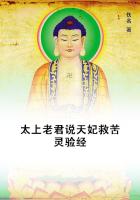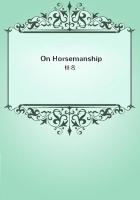But as time wore on, the change in the legal relation between the two classes became apparent in real life. In attaching the peasantry to the soil, the Government had been so thoroughly engrossed with the direct financial aim that it entirely overlooked, or wilfully shut its eyes to, the ulterior consequences which must necessarily flow from the policy it adopted. It was evident that as soon as the relation between proprietor and peasant was removed from the region of voluntary contract by being rendered indissoluble, the weaker of the two parties legally tied together must fall completely under the power of the stronger, unless energetically protected by the law and the Administration. To this inevitable consequence the Government paid no attention. So far from endeavouring to protect the peasantry from the oppression of the proprietors, it did not even determine by law the mutual obligations which ought to exist between the two classes. Taking advantage of this omission, the proprietors soon began to impose whatever obligations they thought fit; and as they had no legal means of enforcing fulfilment, they gradually introduced a patriarchal jurisdiction similar to that which they exercised over their slaves, with fines and corporal punishment as means of coercion. From this they ere long proceeded a step further, and began to sell their peasants without the land on which they were settled. At first this was merely a flagrant abuse unsanctioned by law, for the peasant had never been declared the private property of the landed proprietor; but the Government tacitly sanctioned the practice, and even exacted dues on such sales, as on the sale of slaves. Finally the right to sell peasants without land was formally recognised by various Imperial ukazes.*
For instance, the ukazes of October 13th, 1675, and June 25th, 1682. See Belaef, pp. 203-209.
The old Communal organisation still existed on the estates of the proprietors, and had never been legally deprived of its authority, but it was now powerless to protect the members. The proprietor could easily overcome any active resistance by selling or converting into domestic servants the peasants who dared to oppose his will.
The peasantry had thus sunk to the condition of serfs, practically deprived of legal protection and subject to the arbitrary will of the proprietors; but they were still in some respects legally and actually distinguished from the slaves on the one hand and the "free wandering people" on the other. These distinctions were obliterated by Peter the Great and his immediate successors.
To effect his great civil and military reforms, Peter required an annual revenue such as his predecessors had never dreamed of, and he was consequently always on the look-out for some new object of taxation. When looking about for this purpose, his eye naturally fell on the slaves, the domestic servants, and the free agricultural labourers. None of these classes paid taxes--a fact which stood in flagrant contradiction with his fundamental principle of polity, that every subject should in some way serve the State. He caused, therefore, a national census to be taken, in which all the various classes of the rural population--slaves, domestic servants, agricultural labourers, peasants--should be inscribed in one category; and he imposed equally on all the members of this category a poll-tax, in lieu of the former land-
tax, which had lain exclusively on the peasants. To facilitate the collection of this tax the proprietors were made responsible for their serfs; and the "free wandering people" who did not wish to enter the army were ordered, under pain of being sent to the galleys, to inscribe themselves as members of a Commune or as serfs to some proprietor.
These measures had a considerable influence, if not on the actual position of the peasantry, at least on the legal conceptions regarding them. By ****** the proprietor pay the poll-tax for his serfs, as if they were slaves or cattle, the law seemed to sanction the idea that they were part of his goods and chattels. Besides this, it introduced the entirely new principle that any member of the rural population not legally attached to the land or to a proprietor should be regarded as a vagrant, and treated accordingly. Thus the principle that every subject should in some way serve the State had found its complete realisation. There was no longer any room in Russia for free men.
The change in the position of the peasantry, together with the hardships and oppression by which it was accompanied, naturally increased fugitivism and vagrancy. Thousands of serfs ran away from their masters and fled to the steppe or sought enrolment in the army. To prevent this the Government considered it necessary to take severe and energetic measures. The serfs were forbidden to enlist without the permission of their masters, and those who persisted in presenting themselves for enrolment were to be beaten "cruelly" (zhestoko) with the knout, and sent to the mines. The proprietors, on the other hand, received the right to transport without trial their unruly serfs to Siberia, and even to send them to the mines for life.**
Ukaz of June 2d, 1742.
*See ukaz of January 17th, 1765, and of January 28th, 1766.
If these stringent measures had any effect it was not of long duration, for there soon appeared among the serfs a still stronger spirit of discontent and insubordination, which threatened to produce a general agrarian rising, and actually did create a movement resembling in many respects the Jacquerie in France and the Peasant War in Germany. A glance at the causes of this movement will help us to understand the real nature of serfage in Russia.















